
Iran Isolated due to COVID-19 and FATF
The editorial of Setareh Sobh focuses on how Iran has become increasingly isolated due to its non-ratification of FATF legislation and the spread of the coronavirus in the country.
The Expediency Council’s failure to ratify the FATF bills will not create any obstacles for importing medicines. This is because the Swiss government, the US Secretary of State and the US Secretary of the Treasury have announced that they won’t create any problems for Iran in importing medicines to combat the coronavirus.
But in other cases, Iranian banks and financial institutions have been facing difficulties, as not ratifying FATF bills is a kind of international self-sanctioning. Sanctions that do not need to be passed by the UN Security Council are imposed on Iran which will have a negative impact on its economy, and they will increase the volume of non-transparent financial transactions and smuggling into Iran.
FATF bills have certain requirements such as countering money laundering and terrorist financing. Now the question is: is Iran going to transfer money to terrorists? Is it going to engage in money laundering? If the answer is no, then not ratifying the bills will not benefit the country; it will rather cause damage.
Now with the outbreak of the coronavirus in Iran, the country has become more isolated. Currently, Iran faces problems in the international sphere. For example, the Iranian flight going to Turkey had to return to Iran as it wasn’t permitted to land.
Now Iranian officials must find a solution in order to normalize Iran’s relationship with the world. Don’t they know how dangerous the situation is?
Of course, there are political reasons for the current isolation of Iran. As we know, other countries that are dealing with the coronavirus are not as isolated as Iran. About 50 countries are fighting the coronavirus, but the question is: why is only Iran isolated?
The Impact of COVID-19 on non-oil Exports
The editorial of Eskenas deals with the consequences of the coronavirus on Iran’s non-oil exports.
One of the main goals of the Sixth Export Development Plan was to reach a 22 percent annual growth in non-oil exports. The most significant regional markets for exporting Iran’s food items are Russia, Iraq and Oman.
Iraq is the first and foremost importer of products from the Iranian food industry. Iraq’s demand for imported goods has always been significant, and Iran has played a significant role in providing Iraq with food.
Commercial trade between Iran and Iraq has been disrupted since last week, as a result of which commercial trucks have been stuck at the Mehran border and have not been able to unload their cargos. According to the Customs Office, Iranian and Iraqi truck drivers have been waiting on both sides of the border for Iraqi officials to make their decision. Due to the closing of the Mehran border, 1,000 trucks carrying export goods have been halted at the border.
The Bazargan border was closed on Sunday by the Turkish government. According to the Customs Office spokesperson, closing the border was a measure to safeguard the health of Turkish citizens and Turkey itself will suffer losses as a result.
After the outbreak of the coronavirus in Iran, some neighboring countries have closed their borders with Iran, thus creating setbacks for non-oil exports. Importing and exporting goods will depend on how long the coronavirus will last in Iran. But it will certainly have repercussions for Iran’s economy.
According to the deputy head of the Iran-China Joint Chamber of Commerce, currently, there is a ban on importing 1,400 products from China and other countries.
Now the containment of the virus to prevent it from spreading all over the country can be decisive in averting an economic crisis in Iran.
When the budget for next year relies heavily on the non-oil economy, the government must carefully plan to prevent harm to non-oil exports in case of a crisis like the outbreak of the coronavirus. So the government’s agenda must be to prevent the spread of this disease and to take strong safety measures against it.
Prioritizing People’s Health Over the Economy
The editorial of Jahan Sanat focuses on the outbreak of the coronavirus in Iran and why the government must take necessary measures to prevent its further spread – no matter how costly they will be.
When people’s health and lives are endangered by the outbreak of a virus, government policies are obviously directed towards preventing the further spread of the virus in society. So far it seems that doctors and the Health Ministry in Iran have done their best to prevent the spread of the coronavirus in the country. Nevertheless, stories shared on social media in this regard have generated fear in society and they will have negative repercussions on Iran’s economy.
Iranian officials have not yet quarantined the cities where the coronavirus is more widespread, but if the rate of those infected goes above the Health Ministry’s indicators, then quarantining cities will be on the government’s agenda. Evidently, this will have certain costs and will impact the domestic economy and businesses.
Under these circumstances, many businesses will lose their incomes and many economic actors will suffer losses. But when society’s health is at risk, the government must pay the price and shut down public centers. So far, the government has taken measures such as closing schools, economic/social forums, and universities, as well as canceling music concerts, and cultural activities.
Yet despite the costs that society and the government have to pay, the main issue is people’s health and lives. Under the current conditions and despite its huge costs, the economy shouldn’t be the government’s main concern. Rather, the priority is preventing the spread of the virus and maintaining society’s health.
However, it is said that Chinese and Iranian flights still continue. It is said that the flights aim at transferring cargo. But this seems suspicious as transferring cargo by air is the most expensive method in the world which is why cargo transfer is done by ships between Iran and China.
What is important now is to recognize when it is the right time to put cities under quarantine – without considering how much harm it will inflict on the country’s economy.
Poor Crisis Management
With the outbreak of the coronavirus in Iran, the editorial of Siasat Rooz focuses on weaknesses in crisis management in Iran.
Each crisis has certain requirements; one cannot compare natural disasters like floods and earthquakes to the spread of a virus like the coronavirus. Managing each crisis is essentially different. Whenever something happens in Iran, foreign media play a significant role in reporting on it, and cyberspace becomes even more active than foreign news agencies and satellite networks.
There are weaknesses in crisis management in the country. If there were no such weaknesses and related organizations did their jobs accurately and properly, public opinion wouldn’t be impacted by foreign media reports.
Crisis management needs a center for decisions, making statements, and implementing decisions. Under critical conditions, no individual or organization other than that center should talk about the crisis. When anyone and everyone comments on the crisis, it will be used by foreign media to intensify propaganda against the country.
People see shortages in the market and naturally buy health products in bulk, thus disrupting the market. There have always been those who take advantage of such crises. But more importantly, if there is control and accurate supervision of the market, this can most certainly prevent the intensification of the crisis and anxiety in society.
It is a sign of weak media management when a parliamentarian claims that 50 people have lost their lives due to the coronavirus and it is covered by domestic media agencies.
At times of crisis such as the outbreak of the coronavirus, officials in charge of managing the crisis do not know how to do so; domestic media agencies do not have adequate knowledge to cover and manage the crisis; people do not have enough media literacy; as a result, a problem which is going to turn into a pandemic becomes a big problem in the country.

IAEA: Iran’s Uranium Stockpile Five Times Over the JCPOA’s Limit
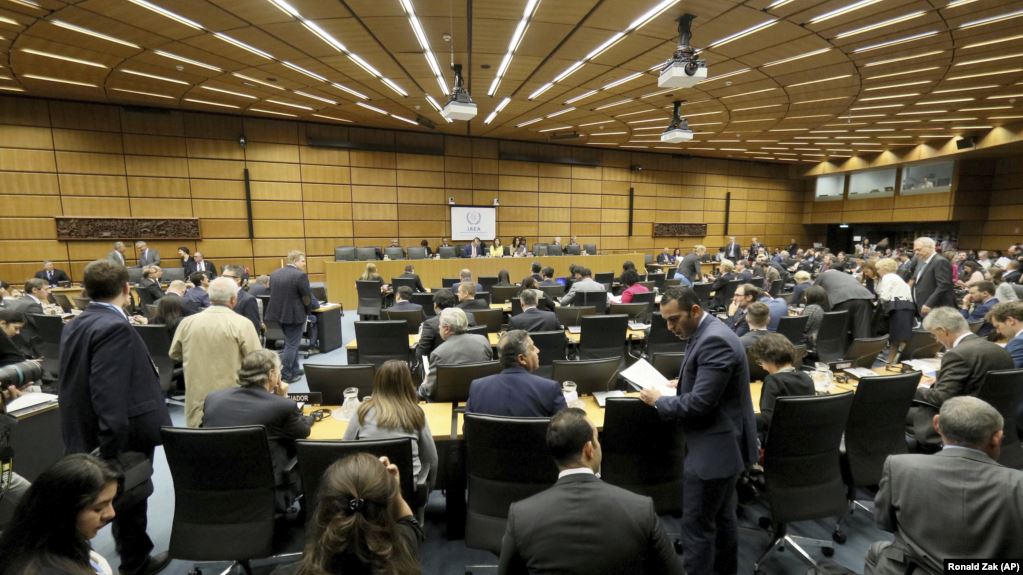
The International Atomic Energy Agency (IAEA) announced Iran’s uranium stockpile is five times over the limit set in the nuclear deal (JCPOA) between Iran and the P5+1.
According to the IAEA’s report, Iran’s stockpile increased to 1,510 kg, while according to the JCPOA, Iran is permitted to have 300 kg of uranium at 4.7 percent.
According to the France news agency, some nuclear experts hold that Iran’s new stockpile is enough for building a nuclear bomb. Nevertheless, there are several stages left to reach this end, including increasing the level of enrichment.
The IAEA’s report says Iran has increased the level of enrichment above the 4.5 percent limit. Uranium enrichment of more than 90 percent is needed for building a nuclear bomb.
The United States pulled out of the nuclear deal in May 2018 and put severe sanctions on Iran. Despite the fact that the other five countries remain committed to the JCPOA, Tehran has breached its obligations under the nuclear deal.
France, Britain, and Germany have threatened to activate the so-called “trigger mechanism” in the deal, which means referring Iran’s nuclear file to the UN Security Council and putting new sanctions on Iran. Also, Europe can target Iran with more sanctions.
According to the Reuters news agency, the IAEA also plans to issue a second report about Iran’s nuclear activities, rebuking Iran for not allowing the IAEA access to at least one undeclared nuclear site in Iran.
Every three months, the IAEA issues a report about Iran’s nuclear activities and its commitment to the nuclear deal.
What is COVID-19 Doing to Iran’s Economy?
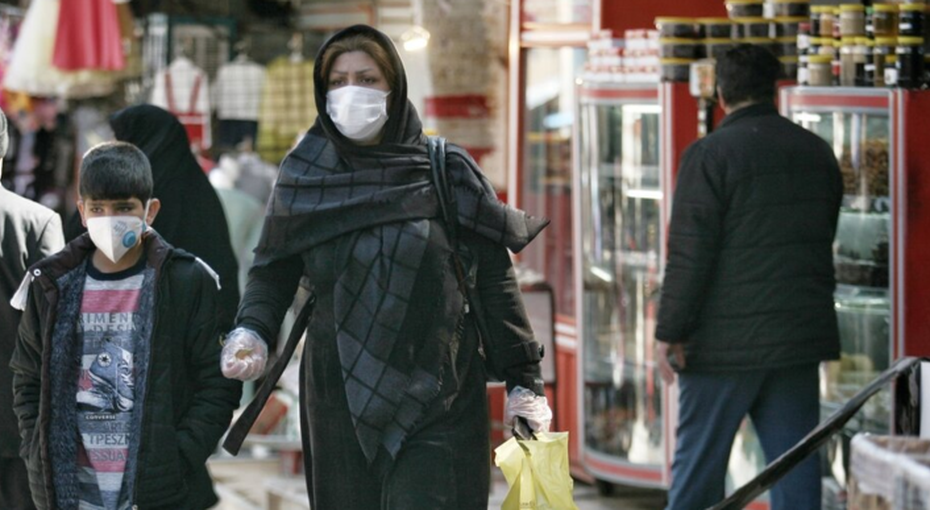
These days Iran is dealing with one of the biggest social crisis in its contemporary history. The outbreak of COVID-19 has disrupted ordinary life in Iranian society. Many small and large businesses have been affected by the virus.
Several streets in Tehran and other big cities are empty; schools and universities are closed; working hours have decreased in many cities including Tehran. Images from shopping centers and markets show that small and big stores are either closed or half-closed. People do not leave their homes unless it is an emergency.
This reality can have a devastating impact on the economy of any country, but this impact is deeper in Iran. COVID-19 is not the first big crisis in Iran, but it is the last thing a crisis-stricken country like Iran needs.
Given the closure of schools and offices in big cities and with commercial life disrupted, we can predict that half of Iran’s economy will stop working due to the coronavirus, which will cost Iran about 3,625 billion tomans per day. It is not clear how Iran’s fragile economy can bear such damage.
If this number is divided across the entire population of Iran, it will amount to 1,300,000 million tomans for each person per month, which is only a little less than a worker’s wage per month. It must be noted that the damage will not be equally distributed. For example, damage to travel agencies, shopkeepers, industries will be much more than others.
Apart from that, COVID-19 will be very costly for the people and the government. It is not clear how Iran’s crisis-stricken economy will deal with this crisis. Iran’s economy wasn’t in a good condition before the coronavirus, but is now dealing with a severe crisis.
Discrimination in Testing for the Coronavirus
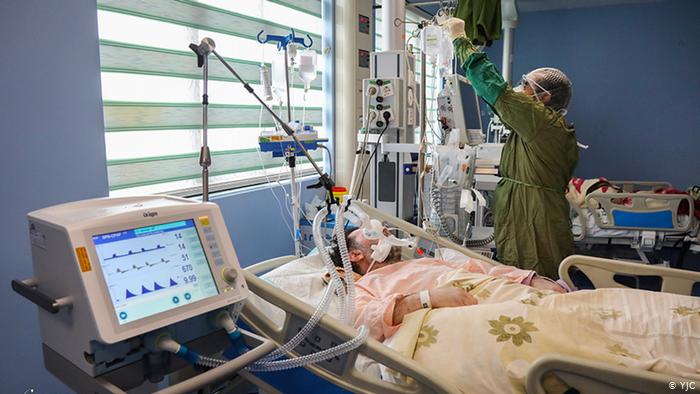
Iranian officials are being tested for free and there is news of the positive results of their tests in the media every day. But for ordinary Iranians, testing for COVID-19 is only carried out under certain conditions like high fever.
According to the IRNA, with the spread of COVID-19 in Iran, lawmakers have received face masks and hand sanitizers – despite the shortage of both products for the ordinary people.
The Expert Council has postponed its annual meeting and the Parliament is closed for 10 days. Meanwhile, religious centers and shrines have not closed despite the recommendation and ratification by the Health Ministry.
Discrimination is mostly seen in testing for the coronavirus. Iranian officials are being tested despite not having the symptoms.
With the outbreak of COVID-19, the Parliament immediately asked lawmakers to be tested, and health workers went to the Parliament in order to test them.
A doctor told the IRNA that the coronavirus test is expensive, and while members of city councils and the Parliament are not showing any symptoms, testing them is ‘unethical.’
Ordinary people will only be tested for the coronavirus if they have a high fever and experience a severe drop in oxygen levels in their blood.
As there has been no transparency with regard to the number of those infected with the coronavirus, as well as its death toll, Iranian people do not trust what Iranian officials say and the statistics they release.
With the outbreak of COVID-19, the price of face masks and hand sanitizers has multiplied in Iran, and the government says it has taken action to counter hoarding and shortage of masks. But these solutions do not seem to be enough, and officials must ask for help from the international community to save people’s lives and manage the crisis.
Iranian Authorities Knew People were Dying of the Coronavirus Much Earlier Than They Announced
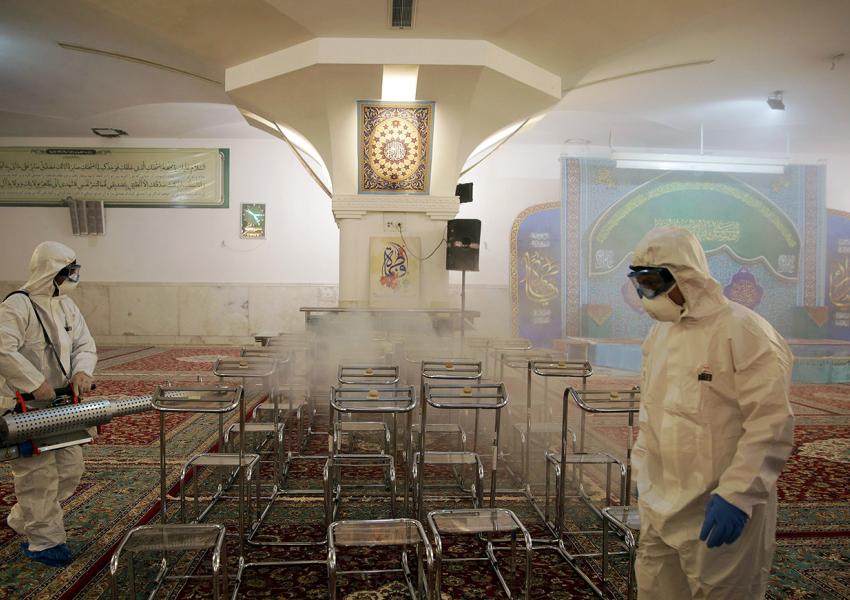
Iran’s Supreme National Security Council and Health Ministry knew people were dying of the coronavirus 12 days before the anniversary of the 1979 Islamic Revolution but refused to announce it.
An informed source told Iran International that after the death of some patients with acute respiratory symptoms in the city of Qom, the deputy health minister went to this city to investigate this issue and it became clear to the Islamic Republic’s authorities on February 3 that the coronavirus had spread in Iran.
However, it took them two weeks to confirm the death of two coronavirus patients in Qom. The announcement was made two days before Iran’s parliamentary elections — which were not postponed despite the virus.
The source who spoke on condition of anonymity pointed out that Iran’s government started registering the coronavirus death toll after its official announcement and “with certain considerations.” The actual number of coronavirus patients and victims has not been announced yet, added the source.
Iran’s Crude Exports Drop Below 250,000 bpd
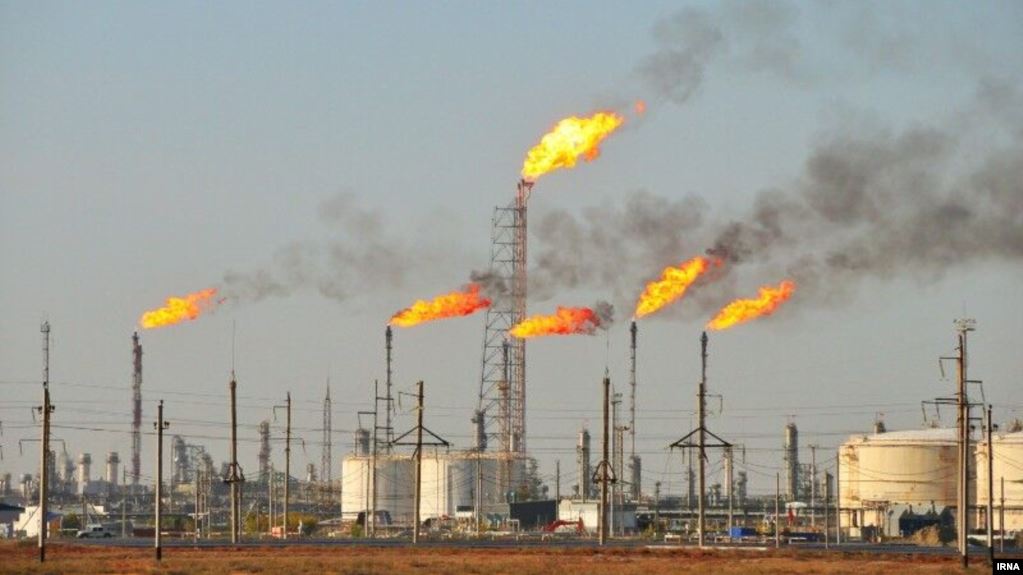
Iran’s oil exports dropped to as low as 248,000 barrels per day in February, according to a report by Kpler, a data intelligence firm. This figure was 254,000 in January.
Despite this reduction, the Iranian government has included 1 million bpd of oil exports in the country’s budget for next year.
Currently Iran sends a major part of its crude oil to China and Syria.
Iran used to export more than 2.5 million barrels of oil before the US sanctions took effect. Besides, prior to the 1979 Islamic Revolution, Iran used to produce 6 million barrels of oil per day.
